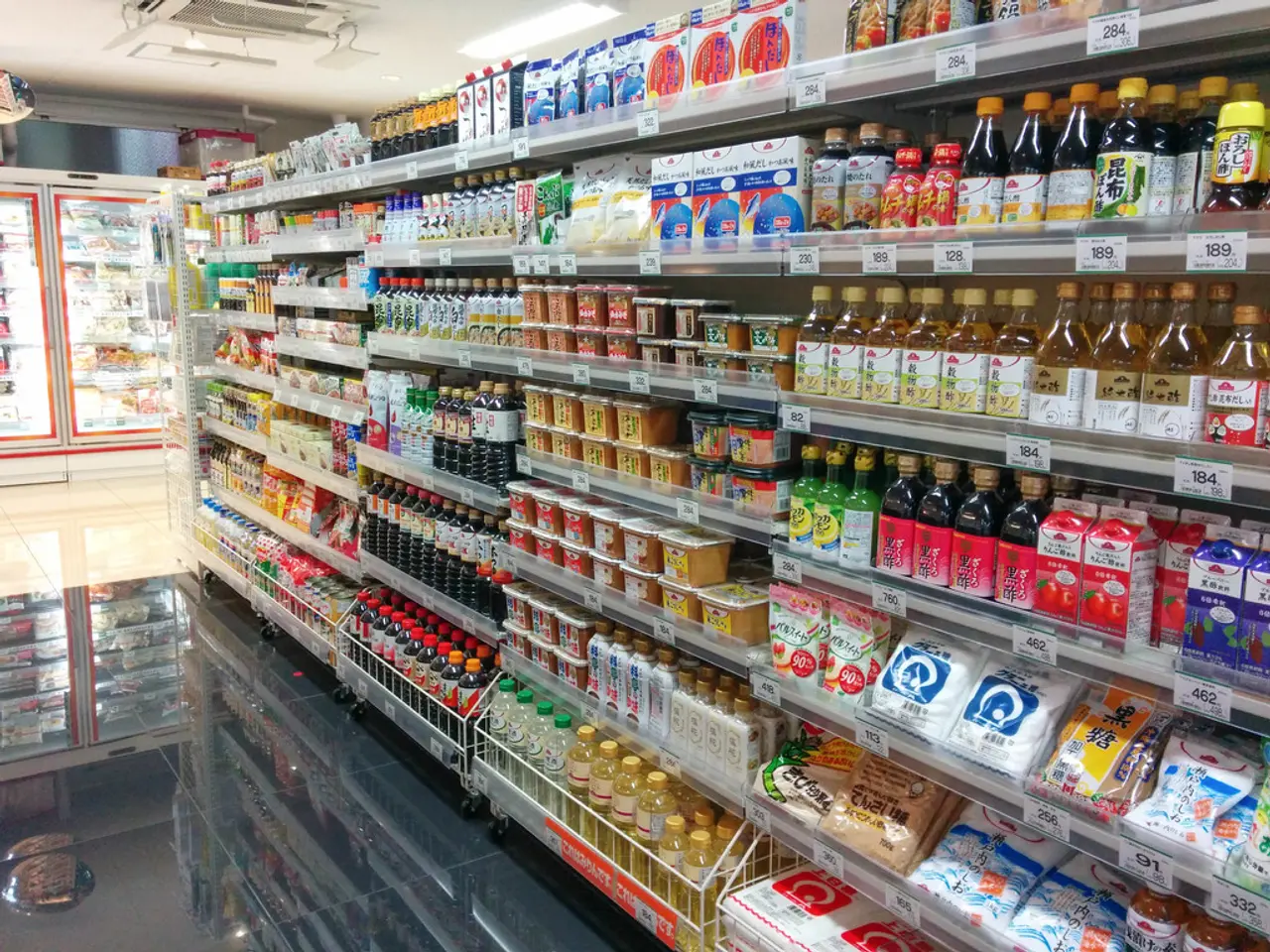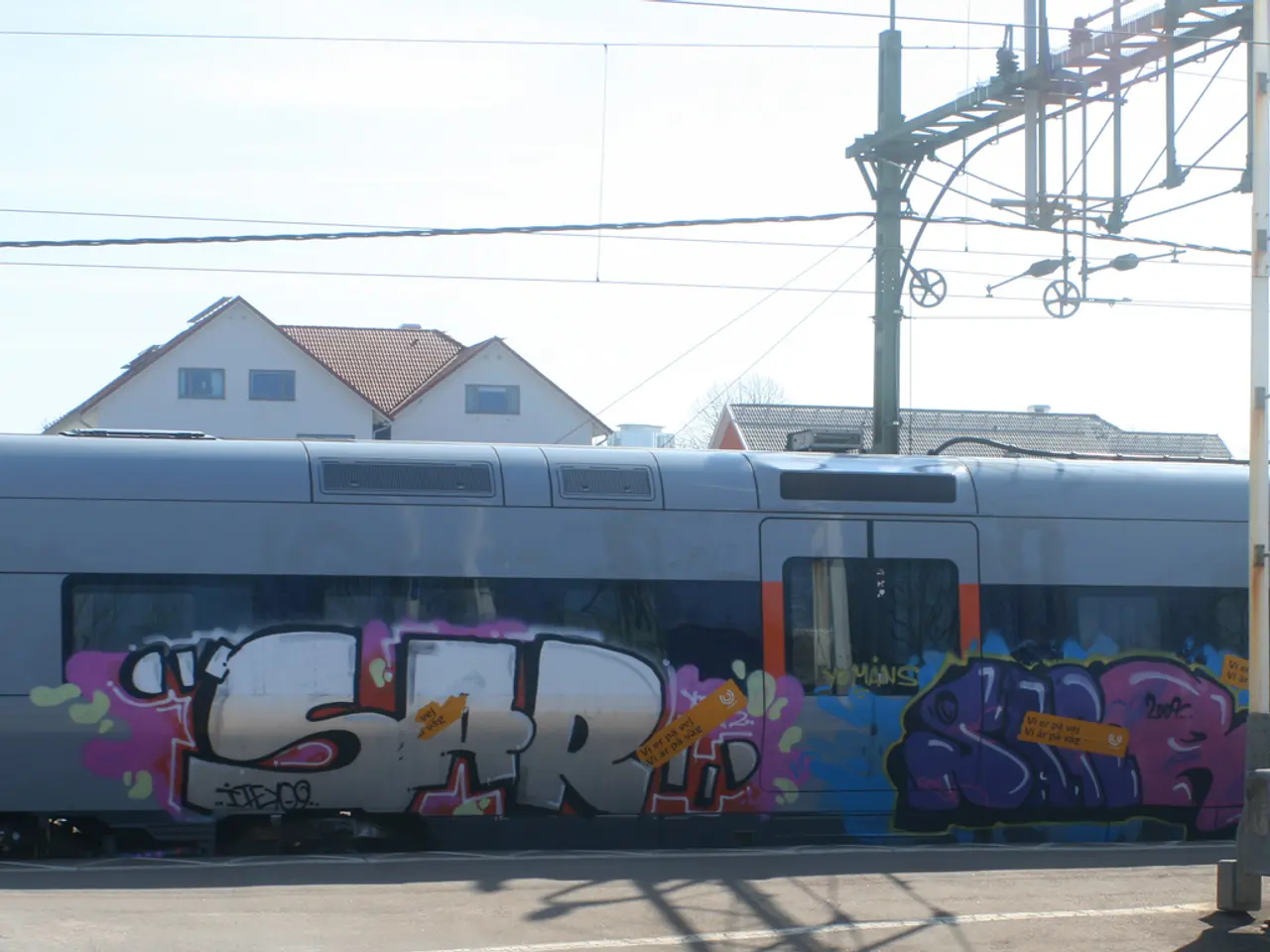Competitive Spirit Kicks Off: Henkel, Beiersdorf, and Infineon Stepping Ahead in the Initial Stage of DAX
The German DAX, the country's blue-chip stock index, experienced a significant drop on the last trading day of the week, closing 0.99% lower at 13,070 points. This marked the largest one-day percentage decline since June 19, 2025.
The decline was primarily influenced by concerns about global economic growth and trade tensions, which weighed heavily on investor confidence, particularly in Germany's manufacturing and industrial sectors that heavily influence the DAX. Sectors like luxury goods and automotive, although more relevant to France's CAC40, also contributed to cautious market sentiment due to shifting consumer preferences and regulatory pressures.
Despite the recent decline, the DAX had recorded a strong performance earlier in the year, even topping global stock performance charts with a +36.3% gain year-to-date. This strong performance was driven by foreign investment and solid fundamentals.
Key components of the DAX, such as Henkel and Infineon, were also affected by these broader trends. Henkel, a consumer goods and industrial company, and Infineon, a semiconductor company, are sensitive to consumer spending and industrial demand trends, as well as global tech demand and supply chain issues, respectively.
Infineon shares continued their rally on Friday, gaining around 1.5 percent shortly after the start of trading, and further increased to around 2 percent after the mid-morning trading session. Henkel, on the other hand, published preliminary figures for the third quarter of 2020, indicating an expected decline in the adjusted earnings per preferred share, with the range now being -19 to -23 percent.
Oil prices also continued to rise, with a barrel of Brent crude costing $43.45 at mid-morning, marking a further increase from the earlier price level. This represents a 15-cent increase from the previous bullet point and is the highest oil price level since early September.
The positive start of the DAX could be attributed to speculation about new economic stimulus. The US markets' solid performance in the green zone the previous evening may have also continued to influence the DAX's positive trajectory.
The euro was not explicitly mentioned in the search data regarding its daily performance, but the cautious investor sentiment and global growth concerns that affected European stocks often impact the euro as well, typically leading to pressure on the currency amid economic uncertainty.
In summary, the DAX ended sharply lower on the last trading day of the week due to growth and trade worries, which impacted companies like Henkel and Infineon indirectly through the broad industrial and manufacturing concerns. The euro likely faced pressure in line with this risk-off sentiment, though no direct data on the currency’s movement was found in the results.
The decline in the DAX was not limited to the German market, as concerns about global economic growth and trade tensions affected other industries such as finance and business as well. Sectors like luxury goods and automotive, although more relevant to France's CAC40, also contributed to the cautious market sentiment due to shifting consumer preferences and regulatory pressures, which could potentially impact these industries worldwide.






